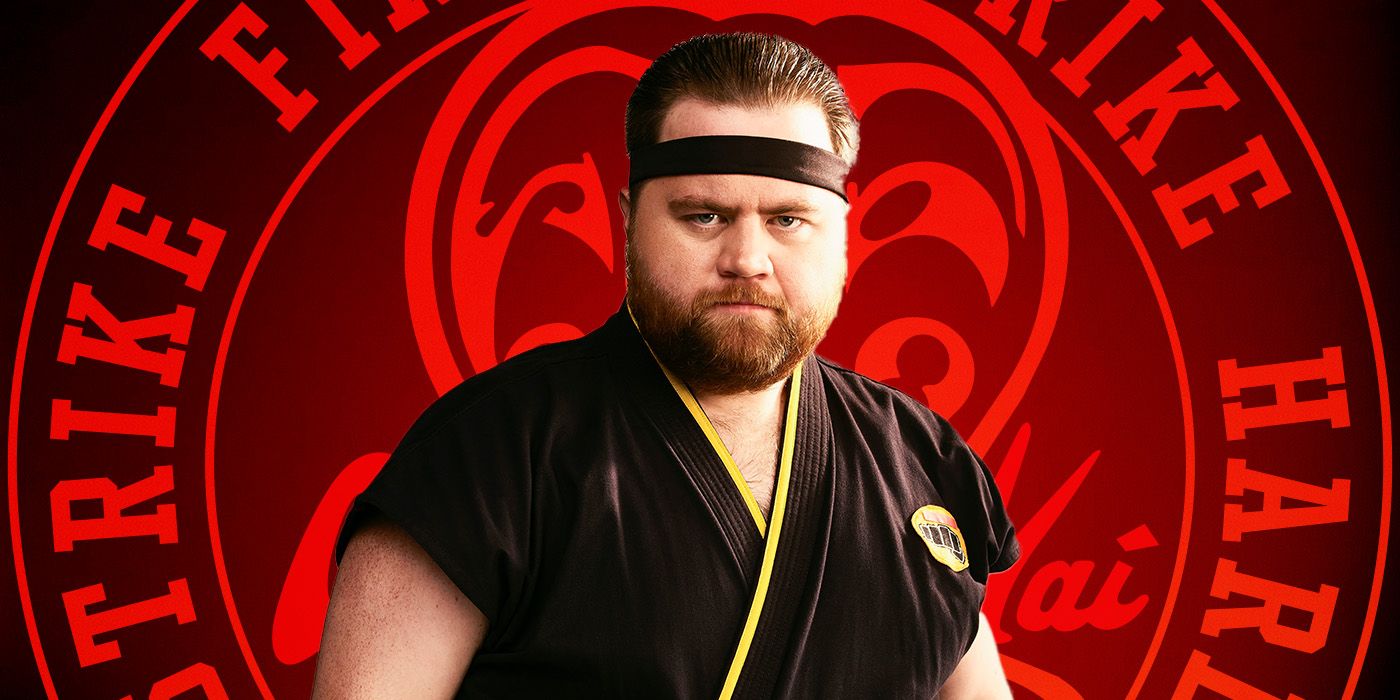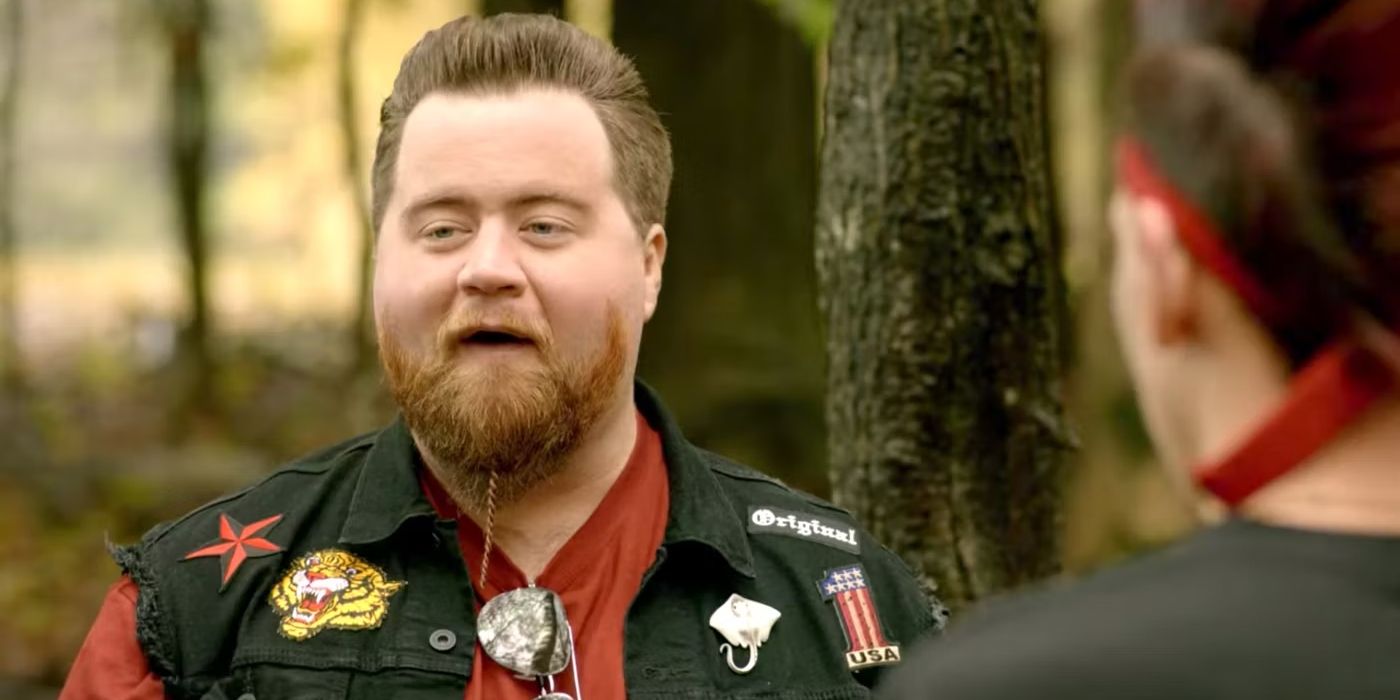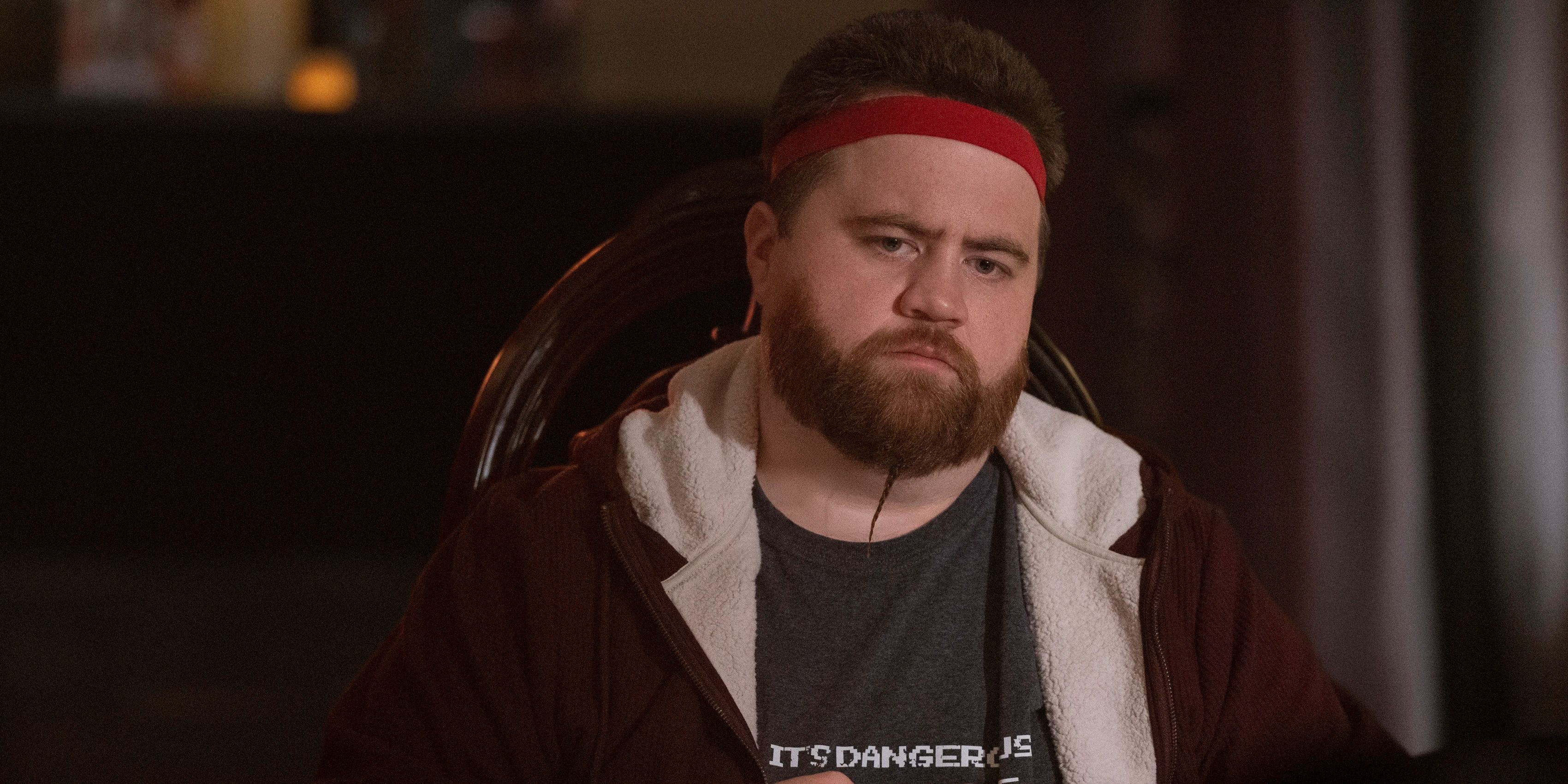The Big Picture
- Paul Walter Hauser's performance as Stingray in Cobra Kai showcases his ability to play eccentric, scene-stealing characters.
- Stingray's character arc in Cobra Kai is one of the most tragic, as he transforms into a toxic bully under the influence of the show's main antagonist.
- Stingray's fate in the final season of Cobra Kai remains uncertain, but there's hope that he can find redemption and rid himself of corrupting influences.
In addition to earning Allison Janney an Academy Award for Best Supporting Actress and giving Margot Robbie one of the best roles of her career, the 2017 biopic, I, Tonya, provided a breakout role for the emerging character actor, Paul Walter Hauser. Within Craig Gillespie’s satirical take on the real Olympic skating scandal, Hauser’s darkly amusing performance as the self-professed “fixer,” Shawn Eckhart, was by far one of the standouts.
In the years since, Hauser has developed as a unique performer who specializes in playing eccentric, scene-stealing characters. While he’s had no shortage of great film roles, Hauser’s performance on the Netflix series, Cobra Kai, showed the menace, empathy, and nuance that he's capable of as an actor.
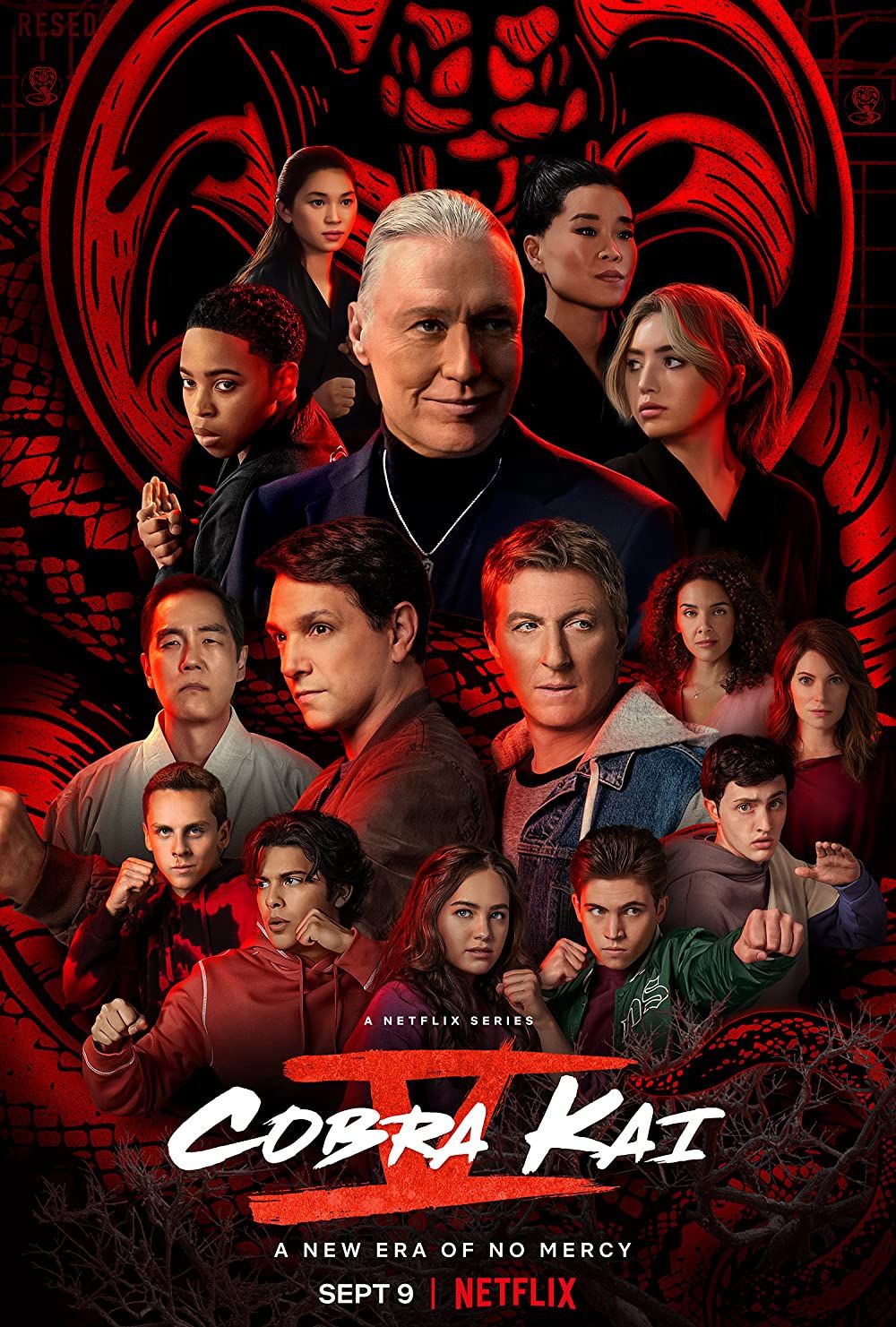
Cobra Kai
Thirty-four years after events of the 1984 All Valley Karate Tournament, a down-and-out Johnny Lawrence seeks redemption by reopening the infamous Cobra Kai dojo, reigniting his rivalry with a now successful Daniel LaRusso.
- Release Date
- May 2, 2018
- Creator
- Josh Heald, Jon Hurwitz, Hayden Schlossberg
- Cast
- William Zabka , Ralph Macchio , Courtney Henggeler , Mary Matilyn Mouser , Marty Cove , Peyton List , Jacob Bertrand , Vanessa Rubio
- Main Genre
- Comedy
- Seasons
- 6
- Streaming Service(s)
- Netflix
Who Does Paul Walter Hauser Play in ‘Cobra Kai?'
While there have been many television reboots of 1980s classics that have failed to live up to the legacy of their source material, Cobra Kai has managed to inherit the blend of sensitive characterization and high-powered action sequences that made the original, The Karate Kid, so successful. Cobra Kai is successful because it appeals to both kids and adults and shows how the transformative art of karate spans multiple generations. Set over three decades after the conclusion of the original film, Cobra Kai picks up with an older, washed-up Johnny Lawrence (William Zabka), who remains in shame from losing the All-Valley Karate Tournament to Daniel LaRusso (Ralph Macchio) in 1984. As he becomes a mentor to his teenage neighbor, Miguel Diaz (Xolo Maridueña), Johnny discovers that he has the ability to inspire those who feel like “outsiders” by training them in karate.
Over the course of Cobra Kai’s first two seasons, Johnny’s bold new leadership of the Cobra Kai has led the dojo to find major success in the All-Valley tournament. Beyond his ability to teach karate, Johnny’s life lessons prove to be inspirational to his students, allowing Cobra Kai to start actively recruiting new members. Hauser co-stars as Raymond Porter, a put-upon hardware store employee who goes by the nickname, “Stingray.” While he’s much older than the majority of the students at Cobra Kai, he shares a ton in common with the bullied social outcasts who Johnny has an affinity for. Hauser does a great job at showing why Johnny’s teachings appeal to Raymond and why he chooses to change his entire lifestyle on a whim; Raymond has never felt totally accepted by his peers and sees this opportunity to be reborn as “Stingray.”
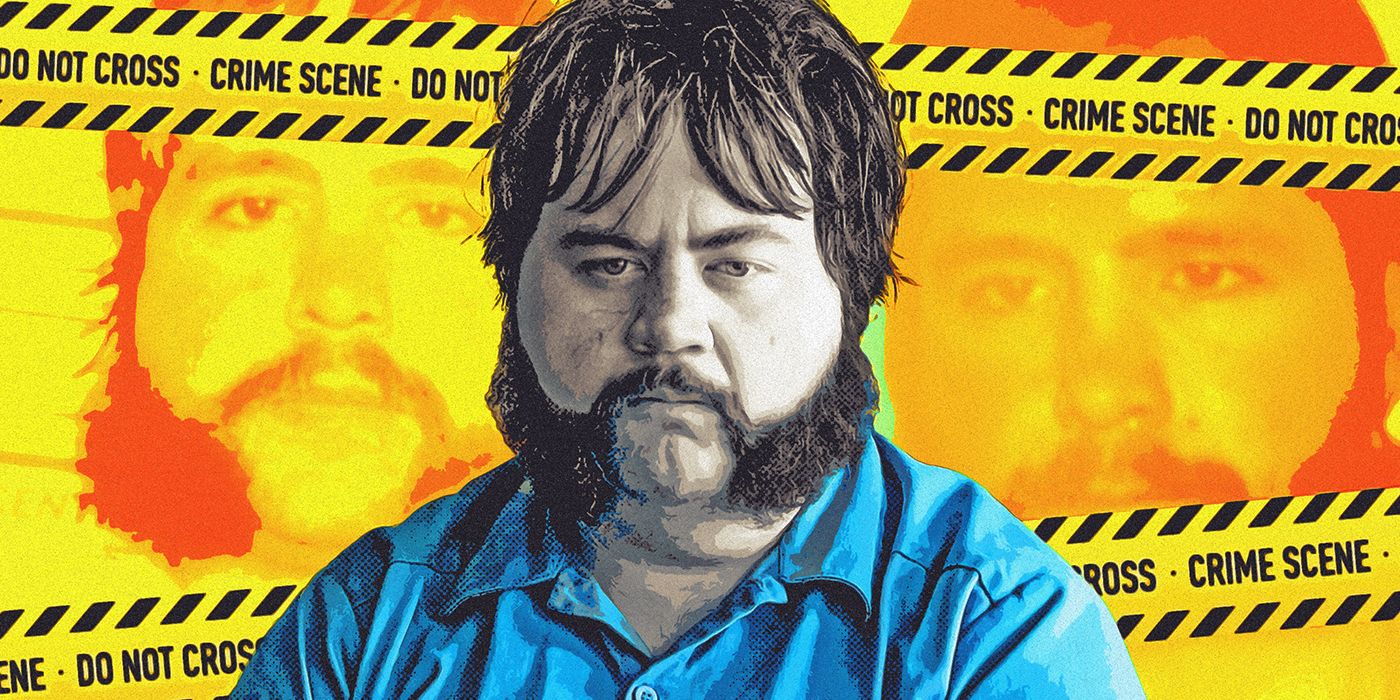
Why 'Black Bird's Paul Walter Hauser Deserves All the Awards
How the real life serial killer makes for a fascinating character on-screen.While including a character like Stingray within a family-friendly series could have been a risk, Hauser doesn’t feel out of place within the youthful ensemble. Much of Stingray’s charisma comes from his arrested development: he’s essentially still holding onto all the dreams, anxieties, and interests that he had during his adolescent years. Witnessing the strong performance of Cobra Kai at the All-Valley tournament awakens a drive for excellence within Raymond that has long since been dormant. The show’s willingness to accept Stingray as a member of the ensemble speaks to the show’s theme of self acceptance; it may have taken him longer to do so, but Stingray has finally found a reason to improve upon his circumstances and not be a spectator for all of his life.
Why Stingray Has One of the Best ‘Cobra Kai’ Character Arcs
While Stingray is initially introduced as an empathetic character, Hauser does a great job at showing how he is susceptible to a corrupting influence. The arrival of John Kreese (Martin Kove), the abusive karate instructor that once ran Cobra Kai, changes the stakes of Cobra Kai, as he threatens Johnny’s leadership of the dojo. While Johnny had taught his students to channel their anger within their karate matches, Kreese encouraged the class to be more outwardly aggressive. Kreese’s sentiments have a transformative effect on Stingray, who relates to his comments about vengeance and resilience. Given the challenges that Stingray has faced in his life, it makes sense that he would be so willing to join the show’s main antagonist. Hauser is able to transform this once likable, schlubby source of comedic relief into an intimidating villain reminiscent of his role in Black Bird.
Stingray’s arc is one of Cobra Kai’s most tragic, as he ultimately becomes the type of toxic bully that he had once joined the dojo to escape from. While he is certainly guilty of perpetrating the tension between Cobra Kai and Miyagi-Do, Hauser shows that Stingray is not inherently an aggressive person. Stingray’s willingness to blindly follow Kreese’s teachings is out of fear of not being accepted, not because of any personal hatred of LaRusso or his students. Sadly, the show chronicles how this style of radical antagonism fails Stingray when he loses his job as a high school security guard and spirals into a depression. Watching Stingray slowly disassociate from the activity that he once adored makes for one of Cobra Kai’s most emotional moments.
What’s Next for Paul Walter Hauser's Stingray in 'Cobra Kai'
While the series is guilty of returning to the status quo at the conclusion of each season, Cobra Kai has set up an exciting future for Stingray as he attempts to redeem himself. The fifth season found Stingray once again infatuated with a charismatic villain when he helped Cobra Kai’s new leader, Terry Silver (Thomas Ian Griffin), oust Kreese and take the dojo in a malevolent new direction. While Stingray is more determined than ever to re-join Cobra Kai as his life has fallen apart without karate, he recognizes that Silver does not have anyone's best interests in mind. Seeing how competition has subverted Cobra Kai’s goals gives Hauser room to show a maturation within Stingray that wasn’t present in earlier seasons.
While the show’s sixth and final season has a bunch of storylines to wrap up, Stingray’s fate remains one of the biggest unanswered questions. Given the series’ sense of optimism, there’s reason to hope that Stingray can once again find acceptance among his peers and figure out a way to rid himself of the corrupting influences that have affected his behavior. Stingray isn’t always a likable character, but Hauser certainly elevates and embodies the material, creating one of the show’s most dynamic characters.
Cobra Kai is streaming on Netflix in the U.S.

